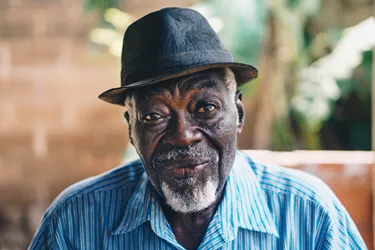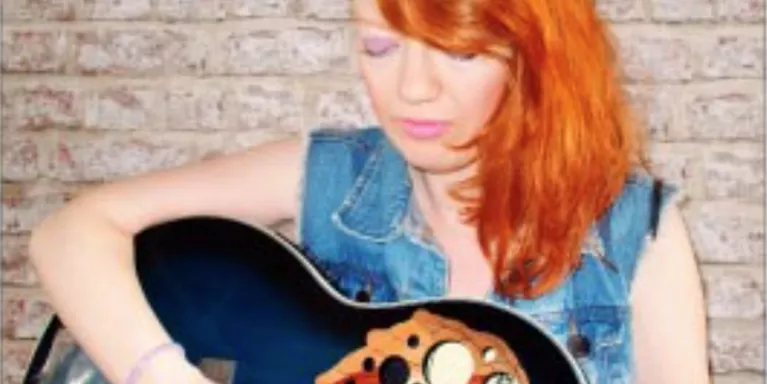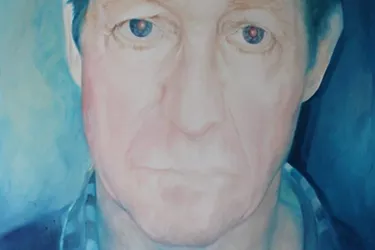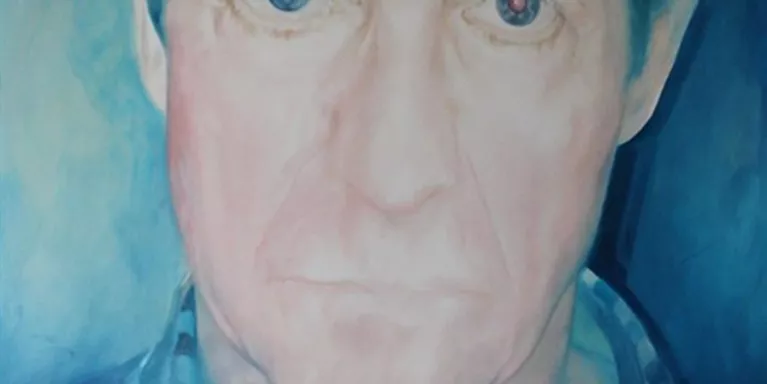Letter to The Dark Place
Is it possible to articulate the depths of your feelings to a total stranger?... In this extract from our Penguin book, Dear Stranger (published 2nd July), legendary writer Caitlin Moran writes a letter to 'The Dark Place'...
Oh, baby – I know the address to put on this letter. It is ‘To The Dark Place’ and I know it because I have been there. I have walked down the gloomy, empty roads at 4 p.m. in January, to that disused warehouse with no windows, and walked around that room. I have slumped on that floor.
Sometimes I would get drunk there – but it’s no place for a party, and the wine soon tastes of vinegar. And anyway, the hangover makes the floor seem harder, as you lie on it, mouthing, blankly, ‘I want to die’ into the dust. And it’s not like you’ve totally lost your sense of humour. You will laugh at yourself as you do this.
"Who’s running your internal monologue?"
‘This is like the Low Point in a film, where everything is lost for the hero,’ you will say to yourself, lying face-down on the floor, dramatically tear-stained. This is Frodo and Sam in Mordor; this is Maria von Trapp, when the Nazis trap them in the nunnery. I am the Ghostbusters just as the Stay Puft Marshmallow Man stamps on that church. A giant Stay Puft Marshmallow Man is stamping all over my cathedral right now. My cathedral is squashed.’
So this is good. You’re still on speaking terms with yourself. You’re trying to make you laugh. You’re making yourself aware of other people who have been in bad places – and then got out of them again. You’re looking for inspiration. You’re doing the right thing.
Because this is the most important thing, when you’re in the Dark Place – to be aware of how you are talking to yourself. What is the voice in your head? Who is it? Who’s running your internal monologue? Are you still echoing things your parents said to you, or someone at school, or a cruel lover? Are the things other people said to you – years ago, decades ago – still butting in on your conversation with you?
Here’s a good way to tell if the voice in your head isn’t one hundred percent you: are you polite to yourself? Are you kind? The key to good relationships, studies have found, is to say five positive things for every negative, or critical, thing. This is how harmonious spouses stay together; how good working partnerships thrive. Five compliments for every ‘But could we just...?’ or ‘I don’t like it when...’
And what I have learned is that you must not treat yourself any less courteously than you would a loved one, or a team-mate. You cannot spend days bitching at yourself, saying, ‘You are worthless’, ‘You said a stupid thing’, ‘You always make these same mistakes, and your knees are fat. Indeed, the mistake you keep making is to have fat knees. You are a terminally fat-kneed clown.’
"Become your own pet."
You would not stay silent if you saw someone being so repeatedly vile to someone else – if someone spoke to your brother, or sister, like this. You would fight them. You would ride into battle on a horse against them. And yet, look at all the things you are saying to you – the unkind whispers as you dress, or sit on the bus. You are so rude to yourself. No wonder you have ended up here, alone, in this warehouse – at an impasse with yourself, once again.
So here’s how you get out of that room. You must treat yourself as a loved one, or team-mate. Or pet. Imagine how you would treat a pet – how you talk to it in a gentle voice; make sure it’s warm; delight in giving it treats, or taking it for a walk.
Become your own pet. Choose what you would be. Select your daemon. It’s a delightful hobby to have – being your own pet. For many years now, I have been a small, charismatic dachshund called Eric. I love Eric. I can be unabashed in my love of Eric – his stumpy legs, his gleeful leaping. Oh, I treat Eric so well! I make sure I walk Eric every day, for I have found he gets morose if he’s cooped up. He needs an hour of fresh air, regardless of the weather – he needs to look up at the sky, and have his heart race when birds fly overhead. He needs to gallop around a bit, woofing – which I disguise as jogging, and going ‘AHHHH!’ at the top of steep hills. He needs regular meals, and a good night’s sleep, and to be stroked, curled up on the sofa, watching musicals.
"There is always a moment where the door – which we could not find before – opens up..."
Eric loves jaunty clothes – he’s got a red bobble hat and a duffel-coat he feels very dapper in. And whenever Eric gets fraught, and thinks he’s having a nervous breakdown, I give him a cup of tea and a biscuit, and he almost invariably feels happier. It is amazing, over the years, how many times you will confuse ‘having a nervous breakdown’ with ‘just needing a cup of tea and a biscuit’. So I always have a big biscuit tin – for Eric.
And because I am kind to Eric, we do not fear visits to the Dark Place now, when they come – although so much less frequently than they used to, before we were together. When we’re in there, we never stop talking to each other – reminding each other that we have been here before, and there is always a moment where the door – which we could not find before – opens up, and we can walk out again, into the sunshine.
And we do not fear that we know we’ll go there again – because the Dark Place is not all bad, you know. We learned to trust each other, in the Dark Place. We bonded, in the empty place. We’ve had some quality time there. And we also know why we end up there, now: because depression takes a layer of skin off, so you feel more of the world than most people. But, as I explained to Eric, that sentence changes, depending on how you say it. We feel more of the world than most people. WE FEEL MORE OF THE WORLD THAN MOST PEOPLE. That’s amazing. That is why we end up in the Dark Place – but it is also why we cry with joy when we listen to David Bowie, and are obsessed with the moon, and can stare at the redness of cherry- juice on our fingers and imagine a whole world that is cherry-juice-red – with stained-glass trees and frosted crimson grass, and tiny, bright birds that fly out of scarlet oyster shells. Every day is a fight – the highs are high, and the lows are low. You are rarely lukewarm. But you and Eric – you are witnesses together. You are not alone, alone.

This is an extract from the book Dear Stranger...
Dear Stranger is a collection of inspirational, honest and heartfelt letters from authors, bloggers and Mind ambassadors to an imagined stranger. All profits from the sale of this book (at least £3 for every copy sold) will be donated to Mind, registered charity number 219830.
Full list of contributors: Fiona Phillips; Martha Roberts; Francesca Martinez; Rachel Joyce; Donal Ryan; Matt Haig; Philippa Rice; Naomi Alderman; Yuval Noah Harari; Ilona Burton; Rowan Coleman; Ellen White; Abbie Ross; Giles Andreae; Conn Iggulden; Seaneen Molloy-Vaughan; Genevieve Taylor; Thomas Harding; Jez Alborough; Caitlin Moran; Blake Morrison; Nicci French; Jo Elworthy; John Lewis-Stempel; Chris Riddell; Tessa Watt; Helen Dunmore; Alain de Botton; Deborah Levy; Kevin Bridges; Marian Keyes; Nicholas Allan; Nick Harkaway; Edward Stourton; Eoin Colfer; Shirley Hughes; Santham Sanghera; Alexandra Fuller; Daniel Levitin; Claire Greaves; Arianna Huffington; Richard Branson; Molly Pearce; Nicholas Pinnock; Tim Smit; Tony Parsons; Dave Chawner; @Sectioned_; and, Professor Lord Richard Layard.

See what we're campaigning on

Information and support
When you’re living with a mental health problem, or supporting someone who is, having access to the right information - about a condition, treatment options, or practical issues - is vital. Visit our information pages to find out more.
Share your story with others
Blogs and stories can show that people with mental health problems are cared about, understood and listened to. We can use it to challenge the status quo and change attitudes.

















